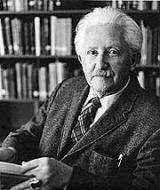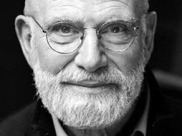You have probably encountered Erik Erikson’s theory of psychosocial development, in which he posits eight epigenetic stages. In each stage a developmental crisis must be positively resolved for optimal further growth to occur. The final crisis occurs in late life, in which a person faces mortality and examines his or her life. This life review can result in either ego integrity, a sense of appreciation for one’s life as lived, or in despair, a sense of regret and disappointment over the outcomes of one’s life.
In teaching adult development, I’ve found it much easier to convey the experience of despair. Students seem to understand that a person could look back over her lifetime and conclude that she had not accomplished enough, had made bad choices, or harmed others unnecessarily. Getting across the experience of ego integrity has been less successful. Feeling a sense of satisfaction seems a pale accomplishment in contrast to the wrenching feeling of despair. Then I read a brief essay in the New York Times online edition by neurologist and author Oliver Sacks.
Among other writings, Dr. Sacks has written numerous very readable books about how people experience and adapt to unusual neurological phenomena and pathologies. He is 81 and describes himself as robust. However, he recently learned that he has metastatic and terminal cancer from a rare tumor he’d thought had been cured nine years ago. The article, entitled, “My Own Life”, contains what I consider an eloquent representation of ego integrity. It contains a deeply genuine expression of expansiveness, individuality, and aliveness in the face of impending death. He ends his essay with this observation, “Above all, I have been a sentient being, a thinking animal, on this beautiful planet, and that in itself has been an enormous privilege and adventure.”
I urge you to read his moving essay. To me it contains inspiration that each of us may reach the end of our lives with a measure of authenticity, clarity, and gratitude. It also conveys a sense of celebration of a life well-lived. That’s the kind of ego integrity I hope to accomplish and wish for all of us!
Sue Sweeney, Chair, Department of Aging Studies, Madonna University


